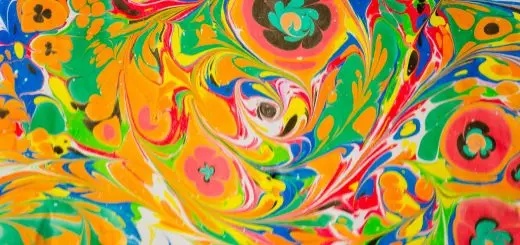Laozi: The Legendary Founder of Taoism

Looking for more amazing products? Check out our online store and explore our collection here! Happy shopping!
Before diving in, please note: This post is for informational purposes only. If you’d like to know more about how we approach topics, feel free to check out our friendly Disclaimer Page.
Hey there, amazing readers! 
We’re committed to delivering quality posts, and your support (even just sticking around despite the ads) means everything to us. So, bear with us, and thanks for helping us keep the good vibes rolling. Now, on to the fun stuff!
TRANSLATE BUTTON AT THE END OF THE ARTICLE
Introduction to Laozi
Laozi is known as the legendary founder of Taoism, a philosophical and spiritual tradition that has had a profound impact on Chinese culture for centuries.
While much of Laozi’s life remains shrouded in mystery and mythology, his teachings have left an indelible mark on the world.
Believed to have lived in the 6th century BCE, Laozi’s wisdom and insights continue to inspire people seeking to live in harmony with the natural order of the universe.
His most famous work, the Tao Te Ching, is a foundational text of Taoist philosophy and has been studied and revered by scholars and spiritual seekers alike.
Early Life and Background
Laozi’s early life is the subject of much speculation and legend.
According to popular belief, he was born in the state of Chu during the Zhou Dynasty in ancient China.
Some accounts suggest that he worked as a historian in the royal court, while others claim he was a contemporary of Confucius.
Regardless of the details, it is widely accepted that Laozi was a wise and respected figure in Chinese society, known for his deep understanding of the natural world and the principles that govern it.
Teachings of Taoism
At the heart of Laozi’s teachings is the concept of the Tao, which can be translated as "the Way" or "the path." The Tao represents the fundamental force that underlies all of existence, guiding the natural world and human behavior.
Laozi encouraged his followers to live in harmony with the Tao, emphasizing the importance of simplicity, humility, and non-action.
By embracing the natural flow of the universe, individuals could find peace and fulfillment in their lives.
Influence on Chinese Philosophy
Laozi’s teachings had a profound influence on Chinese philosophy, shaping the development of Taoism and inspiring other schools of thought.
His emphasis on the unity of all things, the importance of balance and harmony, and the value of humility and self-awareness resonated with generations of thinkers and scholars.
Laozi’s ideas continue to inform Chinese culture to this day, influencing everything from art and literature to politics and ethics.
The Tao Te Ching
Laozi’s most famous work, the Tao Te Ching, is a collection of verses that expound upon the principles of Taoist philosophy.
Written in a poetic and enigmatic style, the text offers guidance on living a virtuous and meaningful life.
The Tao Te Ching covers a wide range of topics, from the nature of reality to the role of the individual in society.
Its timeless wisdom has made it one of the most widely translated and studied works in the world.
Departure from Society
According to legend, Laozi grew disillusioned with the corruption and chaos of society and decided to leave civilization behind.
He embarked on a journey to the west, eventually reaching the border of China.
There, he encountered a guard who recognized his wisdom and asked him to record his teachings before departing.
Laozi then composed the Tao Te Ching before disappearing into the mountains, never to be seen again.
Legends and Myths
Over the centuries, numerous legends and myths have arisen surrounding Laozi and his life.
Some stories claim that he lived for hundreds of years, while others suggest he possessed magical powers.
One popular legend recounts a meeting between Laozi and Confucius, in which the two great sages engaged in a philosophical debate.
These tales, while fantastical, serve to illustrate the enduring legacy of Laozi and the impact of his teachings on Chinese culture.
Historical Evidence
While much of what is known about Laozi is based on legend and mythology, some historians believe that he was a real historical figure.
References to a figure named Laozi can be found in ancient texts dating back to the 4th century BCE, suggesting that he was a well-known and respected figure in Chinese society.
Despite the lack of concrete evidence, the enduring influence of Laozi’s teachings is undeniable.
Legacy of Laozi
Laozi’s legacy continues to resonate with people around the world.
His teachings on the nature of the universe, the importance of harmony and balance, and the value of simplicity and humility have inspired countless individuals to seek a deeper understanding of themselves and the world around them.
The principles of Taoism, as articulated by Laozi, offer a timeless guide for living a meaningful and fulfilling life in harmony with the natural order of the universe.
Modern Interpretations
In the modern world, Laozi’s teachings remain as relevant as ever.
His emphasis on mindfulness, self-awareness, and living in harmony with nature has found new resonance in a time of increasing complexity and uncertainty.
Many people turn to Taoist principles to find solace and guidance in a fast-paced and often chaotic world, seeking the wisdom of Laozi to navigate the challenges of modern life.
Comparison to Confucius
While Laozi and Confucius are often viewed as opposing figures in Chinese philosophy, they share some common themes in their teachings.
Both sages emphasized the importance of ethical behavior, self-cultivation, and social harmony.
However, where Confucius focused on the importance of duty, tradition, and social order, Laozi advocated for a more intuitive and spontaneous approach to life.
The contrast between their philosophies highlights the richness and diversity of Chinese thought.
Conclusion: Laozi’s Impact on Taoism
Laozi’s legacy as the legendary founder of Taoism cannot be overstated.
Through his teachings on the Tao, simplicity, and harmony, he has left an enduring mark on Chinese culture and philosophy.
His influence continues to be felt in the modern world, inspiring people to seek meaning and fulfillment in their lives by aligning themselves with the natural order of the universe.
Laozi’s wisdom, as embodied in the Tao Te Ching, remains a timeless guide for those navigating the complexities of existence and seeking a deeper connection to the world around them.

The Enlightenment Journey is a remarkable collection of writings authored by a distinguished group of experts in the fields of spirituality, new age, and esoteric knowledge.
This anthology features a diverse assembly of well-experienced authors who bring their profound insights and credible perspectives to the forefront.
Each contributor possesses a wealth of knowledge and wisdom, making them authorities in their respective domains.
Together, they offer readers a transformative journey into the realms of spiritual growth, self-discovery, and esoteric enlightenment.
The Enlightenment Journey is a testament to the collective expertise of these luminaries, providing readers with a rich tapestry of ideas and information to illuminate their spiritual path.
Our Diverse Expertise
While our primary focus is on spirituality and esotericism, we are equally passionate about exploring a wide range of other topics and niches 

To ensure we provide the most accurate and valuable insights, we collaborate with trusted experts in their respective domains 
Our blog originally focused on spirituality and metaphysics, but we’ve since expanded to cover a wide range of niches. Don’t worry—we continue to publish a lot of articles on spirituality! Frequently visit our blog to explore our diverse content and stay tuned for more insightful reads.
Hey there, amazing reader! 
Check out our store here and take a peek at some of our featured products below! Thanks for being awesome!











